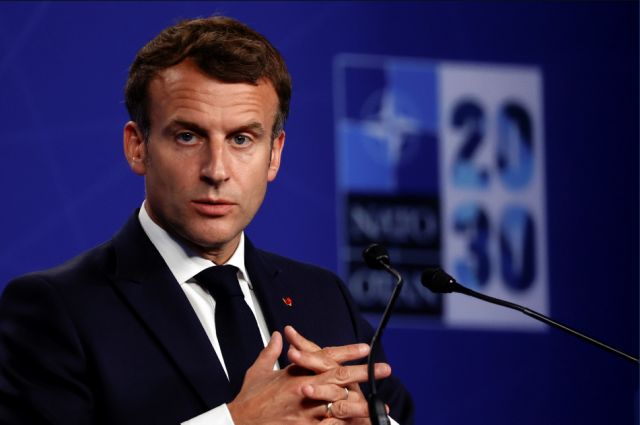France’s political turmoil: elections stir economic fears across Europe
The French elections are causing jitters in the stock market as investors worry about potential economic instability.

France is experiencing a political earthquake, and the stock market doesn't like it. Investors make dire pronouncements, such as whether the French elections might spark the subsequent euro crisis. The euro, the common currency of the European Union, is used by 20 of the 27 member countries, all of which are carefully watching the election results in France due to their potential impact on the euro.
France's Debt Dilemma
France is the most indebted country in Europe, owing more than $3 trillion, about 110% of its GDP. The government is already running a deficit, and if either the right or left-wing parties gain ground, this deficit could rise even further. These parties are pushing for populist policies, such as reducing the retirement age to 60. Last year, President Macron introduced a law raising the retirement age from 62 to 64, but now the far right wants to reduce it to 60, increasing France’s pension bill.
Populist Promises and Economic Impact
Left-wing parties also make populist promises, including raising the minimum wage and lowering individual taxes. These measures aim to put more money into the hands of the people but come with a hefty price tag. France would need more than $20 billion to finance these proposals, and with government coffers already empty, Paris would need to borrow more. Macron's party has been warning against this.
Investors are feeling jittery, too. Last month, French stocks lost about $210 billion as investors sold off French government bonds and shifted their investments to Germany. This turmoil could put more pressure on the euro, spreading negative sentiment to other European economies, such as Italy.
Italy’s Financial Struggles
Italy’s finances are in worse shape than France’s. Last year, Italy owed around $3.1 trillion, about 140% of its GDP, and its deficit is well over 7%. The International Monetary Fund (IMF) has sounded an alarm, pushing Italy to contain its ballooning debt and demanding immediate and decisive action from Rome. The European Union (EU) is also concerned. Last month, the EU reprimanded both France and Italy for their excessive debt and started disciplinary proceedings. If France and Italy fail to contain their debt, the EU could take legal action against them.
Potential for Another Eurozone Crisis
The debt levels of France and Italy are well above the EU’s thresholds: debt levels cannot exceed 60% of GDP, and government deficits cannot be more than 3%. As two of the bigger economies in Europe, any financial contagion from these countries could spread quickly to the rest of the bloc, reminiscent of the Eurozone crisis in 2012, when multiple European states defaulted. Countries like Greece, Ireland, Spain, and Cyprus could either not repay their debts or had to bail out European banks.
This crisis was contained by Mario Draghi, the president of the European Central Bank at the time, who pledged to do whatever it takes to save the euro. However, Europe now faces another potential crisis, and the economy is already vulnerable. Political instability could exacerbate these economic woes.



















COMMENTS
Comments are moderated and generally will be posted if they are on-topic and not abusive.
For more information, please see our Comments FAQ